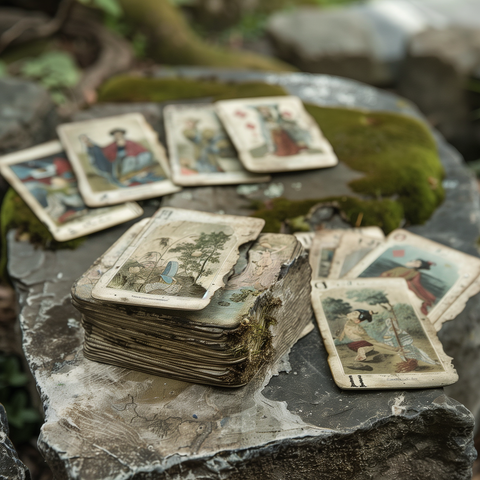
Where does the card game actually come from?
Origins in Asia
The earliest evidence of card games can be found in Asia, more precisely in China. It is believed that the first cards were used as a form of money in the game, evolving from traditional paper money methods. These early maps probably date from the 9th century AD, a time when paper was already in widespread use.
Spread via the Silk Road
Card games spread along the Silk Road, an ancient trade route that connected East Asia with the Middle East and Europe. Traders and travelers played a crucial role in spreading these games. By the 14th century, card games reached Europe, where they quickly gained popularity.
Development in Europe
In Europe, maps developed quickly. Originally they were hand painted, making them a luxury item for the upper classes. However, with the invention of printing in the 15th century, maps became mass-producible, making them much more affordable and widely available.
Different cultures, different maps
Different cultures developed their own designs and play styles. The colors and rankings of cards we know today emerged in Europe, while other symbols and numbers of cards were often used in Asian countries. The card game adapted to local traditions and preferences.
Card games in a social and cultural context
Card games were not only for entertainment but also had social and cultural meanings. They have been mentioned in literary works, depicted in art, and even regulated by religious and political authorities. In some eras and cultures, card games were considered morally questionable or even banned as gambling.
modern times
In the 20th and 21st centuries, card games have continued to grow in popularity. With the invention of computers and the Internet, a new era of digital card games began, complementing and expanding traditional games.
Conclusion
The card game has a rich and complex history that is deeply rooted in the world's cultural traditions. From its humble beginnings in Asia to its global popularity today, it has constantly evolved and adapted. It's a fascinating example of how a simple concept - playing with illustrated cards - can connect cultures and last for centuries.
Love story since 1983
Originated in the Ruhr area. Developed in Berlin.